After making 20 batches of croissants with all sorts of issues, this is the second time I’m seeing this particular problem: giant holes inside the crumb.
I brushed off dusting flour as good as possible. Lamination looked alright, as I can see the layers. Yet, the inner structure collapses after baking and glues together. The croissants look okay out of the oven, but then settle and the rolled layers separate.
Flour
Mix of bread flour and high-gluten flour (Swiss/German: Halbweissmehl (750) and Ruchmehl (1100))
→ This was an experiment because my previous problems never showed a strong inner structure. That’s why I wanted to try flour with more protein. But I had the same issue using only bread flour the previous time. I had great results with bread flour only.
Butter
270g @ 500g flour
Hydration
60% (50-50 water-milk)
Egg wash
Yolk mixed with milk, rather liquid
Bake
17min @ 200 °C with fan (400 F)
Timings
- 8 h bulk ferment (@ 2–3 °C)
- 8 h cold retard after shaping (@ 2 °C)
- 2–3 h final proof (@24 °C, 85%)
I realised only the next day how cold my fridge actually was (set to 4 °C but the lower rack is 2 °C). I usually tune it cold to make chilling in between folds faster.
The problem happened to all pain au chocolat and all croissants. Two different laminations. So I have a hard time thinking it’s lamination. Flour, mixing, proofing, baking? What went wrong?
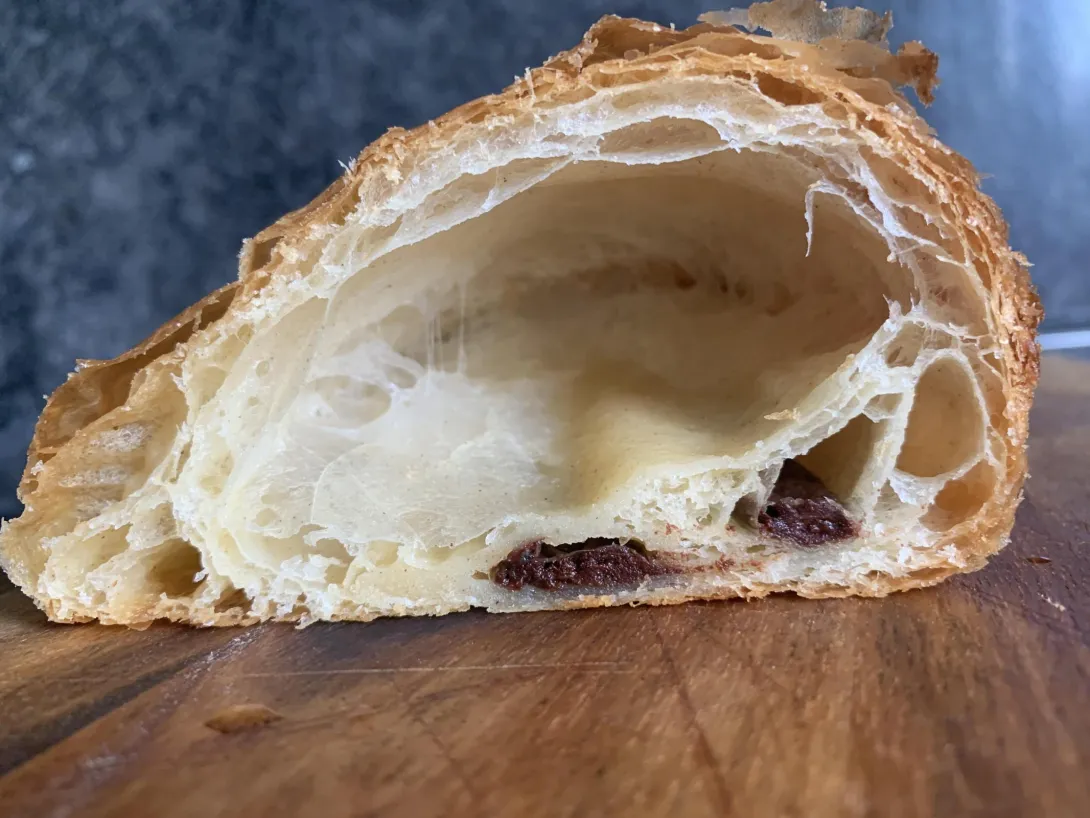
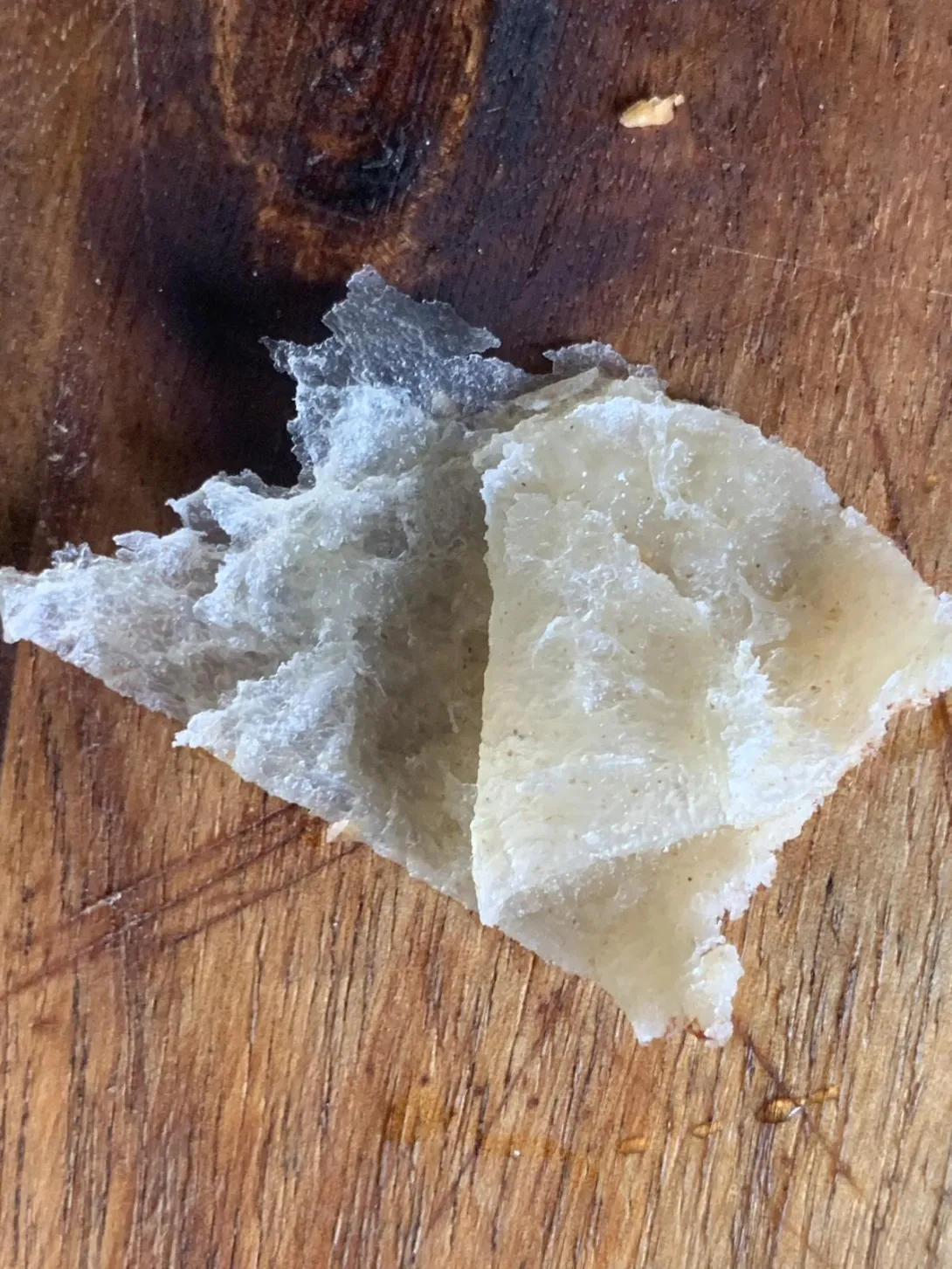
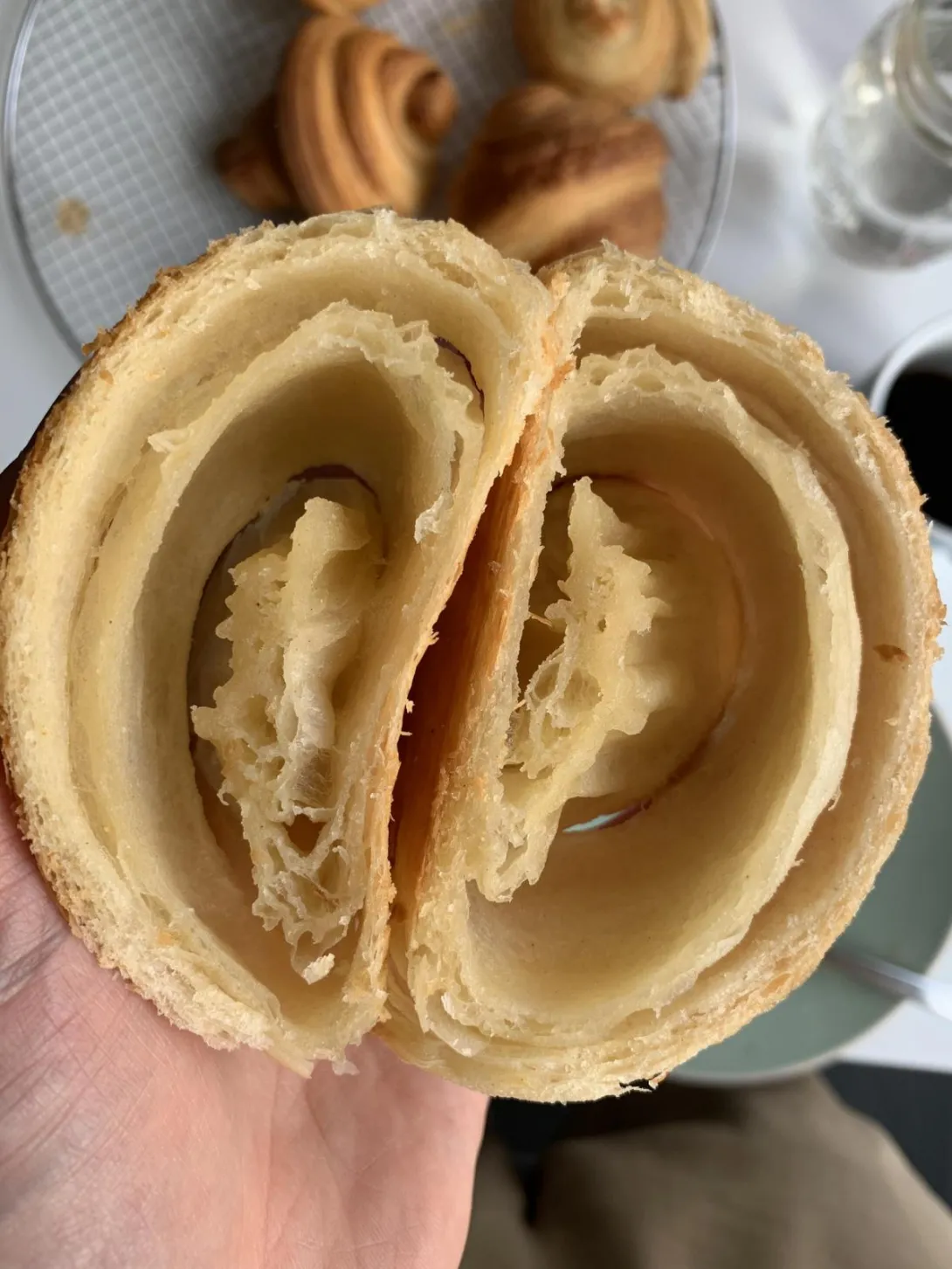
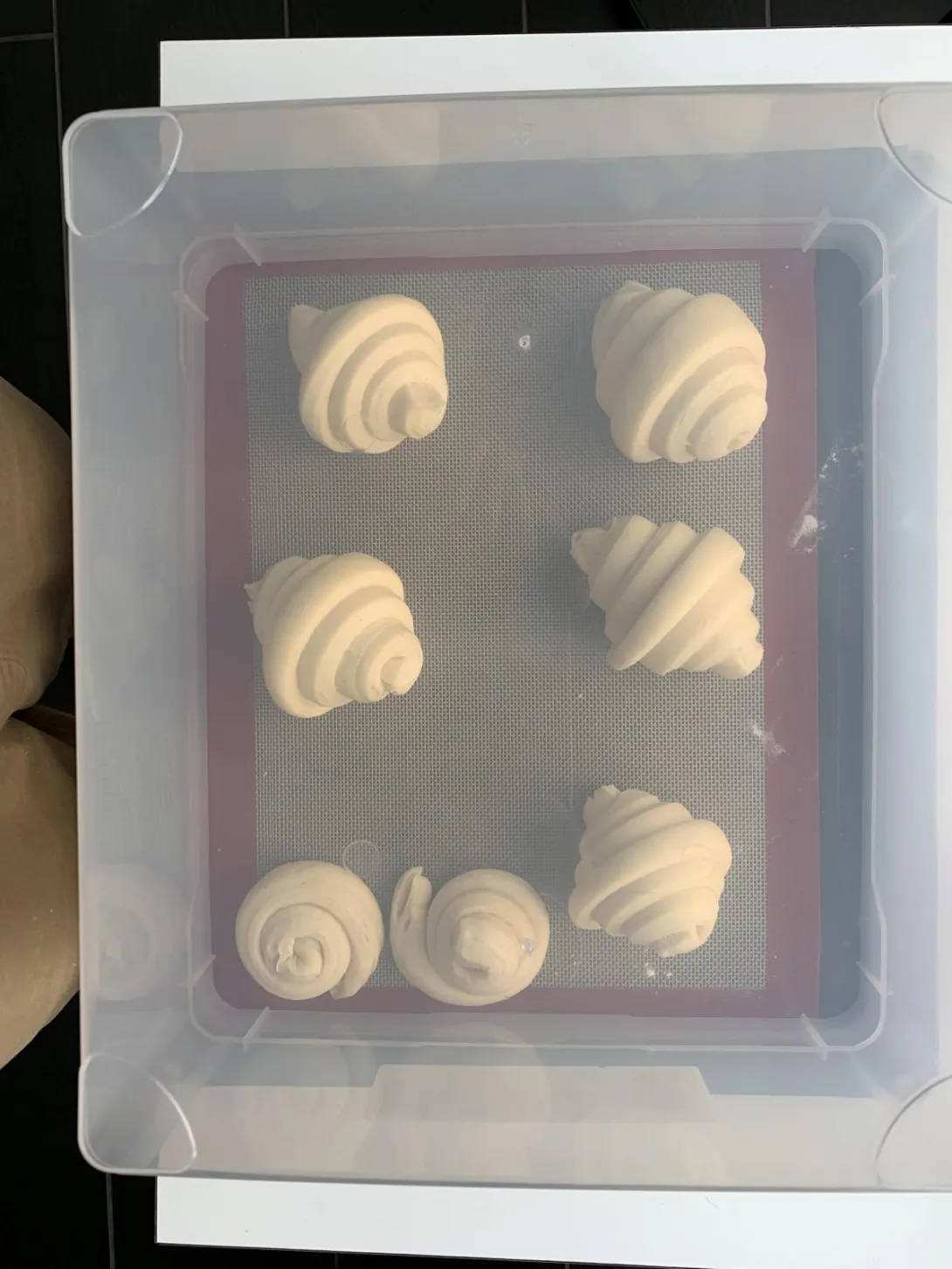
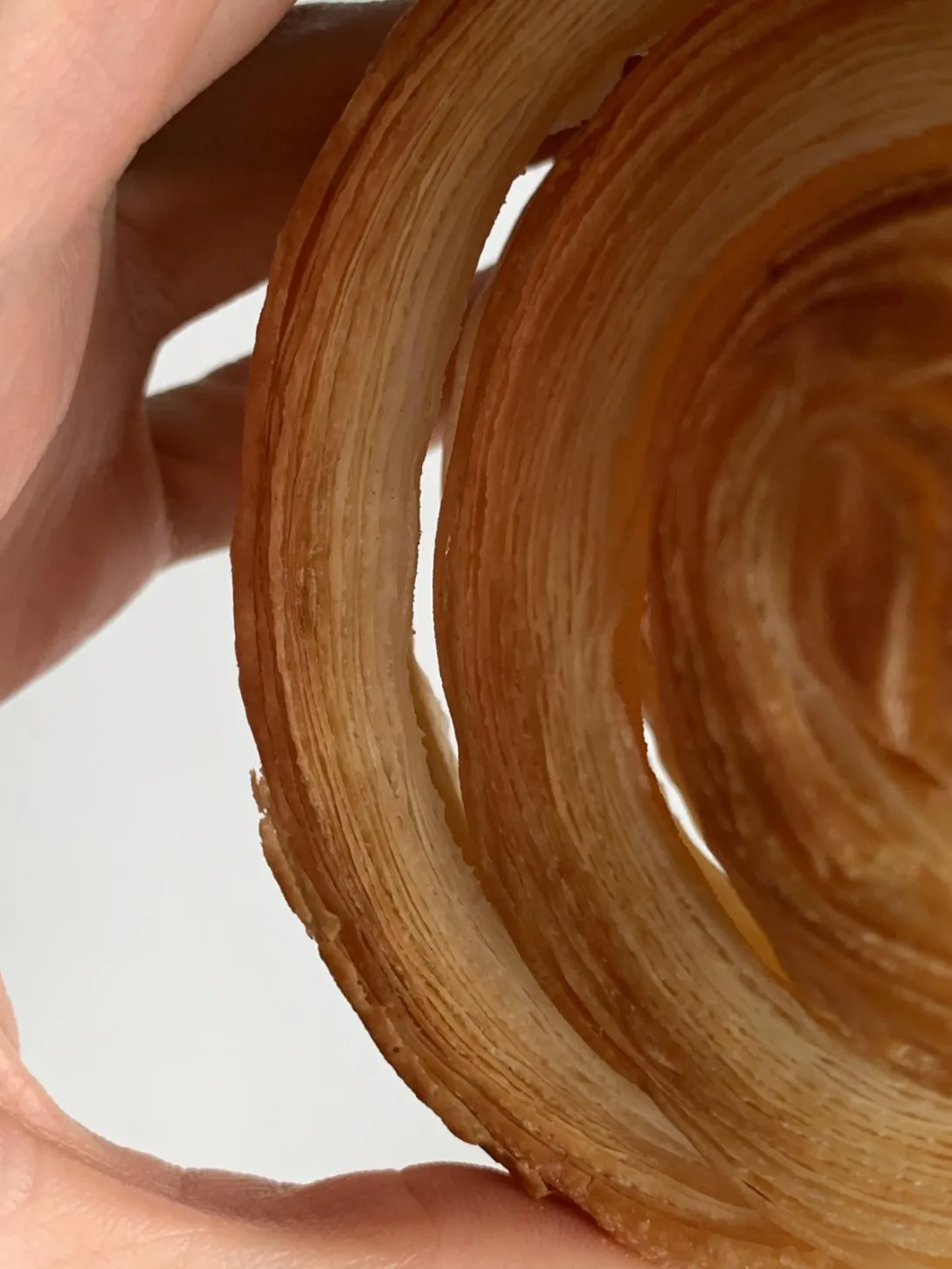
Trying to make sense of it I came up with this visualisation. Thinking more about it, while proofing, the shaped "rolls" didn’t form a stable connection … more proofing or related to the dough itself?
In my experience this happens due to underproofing. I have baked 10000s of croissants and I have learned you really have to wait until they are good and ready. My recipe is a little different than most and uses less yeast so it takes 4-6 hours to proof.
your laminations look good and from your description, I would just push the final proof good and long. They can get really really big if you let them keep proofing.